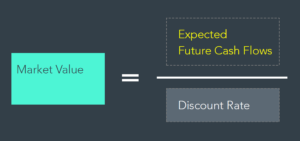Investing vs. Speculation – What’s the Difference?
7.5-Minute Read
“In 1,000 parallel universes, you want to be wealthy in 999 of them. You don’t want to be wealthy in the fifty of them where you got lucky, so we want to factor luck out of it.”
– Naval Ravikant
Volatile Markets. Emotional Swings. Family Protection. Societal Expectations. All can be challenges as you try to make good money decisions over time.
When you’re not spending or giving away your money, there are arguably only two things left to do: Invest or Speculate.
The differences between investing and speculating can be subtle. I encourage you to invest. At times you may think you’re investing but not aware that you are speculating. In this piece, I attempt to bridge this gap. We explore the following:
- Three mindsets that may help you become a better investor
- Three modern examples of speculation – for your awareness, even if you can’t avoid them completely
- How to respect (and hopefully transcend) the dangers of speculation
Three Mindsets to Becoming a Better Investor
One – Focus on Cash Flow
Let’s start with a common definition of investing: you exchange your financial capital for the expectation of receiving more money in the future than what you put in. But this is a general statement. It may not help much as we try to distinguish investing from speculation.
We can try to put it another way: an investment must have some expected future cash flow. But what is cash flow? Here are a few examples:
- Positive net operating income on a rental property
- Profits from your ownership interest in a business
- Dividend and capital gain income on a stock portfolio
- Interest income on a bond portfolio
While investing can be complicated, you can view any investment through the lens of this valuation equation below, courtesy of Dimensional Fund Advisors.

I explain this equation in an earlier blog piece on value investing. The key is to remain focused on cash flow. Here are a few other notable points:
- Market value is the price you pay for a future stream of cash flows.
- Discount rate is what links price and cash flow together. This rate is more commonly called your expected return.
- For a given expected cash flow level, the lower the price you pay the higher your expected return. And vice versa.
Two – Accept Uncertainty
Physicists are familiar with the uncertainty principle as it relates to the position and momentum of a particle. If we look beyond the laws of nature, there’s also an uncertainty principle that applies to investing.
It’s a good start to first accept the importance of cash flow. The challenge is that with most investments, there’s some uncertainty to how much future cash flow will be. This leads to a general rule of thumb: the more certainty you demand as an investor, the higher the price you should be willing to pay.
With a higher price paid, you generally have a lower expected return. Take for example US treasury bills (T-Bills). In nearly the last one hundred years, they have never had a year with a negative return3. That’s a high degree of certainty, right? But if you factor in inflation, it has often been difficult to preserve your purchasing power with T-bills. For what it’s worth, you would have barely reached break even (in inflation adjusted terms) over the last thirty years4.
If you’re willing to accept some uncertainty, the lower the price you might be able to pay. With that lower price, you generally have a higher expected return. An example might be a company’s stock or a stock mutual fund.
Investing comes with risk. Expected return is not the same as your actual return. Ideally the investment strategy you choose should improve the odds of increasing your purchasing power over time. But the extent it does so often depends on how much risk you’re willing to take. How much uncertainty are you willing to bear?
Three – Respect Your Evolutionary Limits
You might step back and appreciate how investing is a relatively new endeavor for human beings. Yuval Noah Harari, author of the incredible book Sapiens, shares some interesting figures:
- Evolution of humans (genus Homo) – 2.5 million years ago
- Evolution of our species of humans (homo sapiens) – 200,000 years ago
- First known use of money – 5,000 years ago
I only state these figures to show that our species has evolved an almost unimaginably long time without even slightest concept of investing.
While our logical brains can handle the concept of exchanging financial capital for some future benefit, the primitive part of our brains can sabotage us as investors. We’re designed to deal with the immediate threats in front of us.
While you can’t force yourself to evolve faster, it may help you to define investing more holistically. Perhaps try something like this: Investing as an ongoing process to build wealth that is aligned with your values and goals.
Three Examples of Speculation
The more you lose sight of cash flow, the more you must accept that you are speculating and not investing. It’s not always easy to tell the difference. There are different degrees of speculation, ranging from outright guesses to more sophisticated methods. Let’s look at three forms of speculation.
One – Crypto and Non-Cash Flow Producing Assets
Blockchain technology is fascinating. The possibilities seem endless and limited only by our own imaginations. Cryptocurrencies are perhaps the most well-known direct application of blockchain right now.
But does this mean you should call cryptocurrencies investments? This may come down to how you personally define an investment.
Using Bitcoin as an example, I don’t know where its price will go in the future. But there’s one subtlety that’s easy to miss. Owning one Bitcoin doesn’t give you the right or expectation to receive additional Bitcoins in the future. You might still make a profit buying a Bitcoin, but perhaps only if it appreciates in value relative to other currencies.
If you agree with the cash flow-based definition presented in this blog, then cryptocurrencies cannot be investments. They would be speculative assets. Of course, they could serve to store wealth, but do they create wealth? In fairness, this question could be asked of any “fiat” currencies like the dollar or euro, not just crypto.
Other assets you could scrutinize the same way include commodities, precious metals, and undeveloped land. They too are potential stores of wealth. Arguments can be made to include these types of assets in your portfolio for the possible diversification and inflation protection benefits they could provide. The line between investing and speculating is not always clear.
Two – Stock Trading
Let’s blur the line even further. Do you love to buy and sell stocks of individual companies? It has never been easier to do from a transactional perspective. Online, you place buy and sell trade orders and often pay no visible transaction fee for the trade depending on the platform you’re using.
My hope is if you’re using an individual stock strategy, you have a strong interest, passion, and process for doing security analysis. You truly understand the positions you hold and why you’re holding them. For so many, that’s not the case at all.
If you’re buying stocks simply because you use the products or services that company provides, be careful. I know that was a popular strategy advocated (but often misunderstood) by Peter Lynch but I don’t know if that’s good use of time or capital for most people.
One sign you might be speculating is if you’re having too much fun buying and selling stocks. I’m not trying to be the fun police. But investing is tough enough without the emotional swings involved.
Three – Concentration Risk
There’s another way to think about speculation. It’s not only about the choice of investment you make. It’s also the size of that investment in relation to your total investments. It is when you’re taking an overly “concentrated” position in any one thing.
An example may help. Assume you’re working for a company and have a large percentage of your portfolio allocated to that company’s stock. This may have occurred over time through things like employer stock purchase plans, restricted stock units and stock options.
You convince yourself of the reasons to hold the stock. You’ve got skin in the game. You believe in the mission. Maybe the company is enjoying some positive momentum and you don’t want to miss out.
The company’s stock might also satisfy the cash flow criteria noted above. That makes it an investment, right? Maybe your company’s stock qualifies as an investment but owning too much of it could be speculative within the context of your own financial plan.
If the company suffers a massive decline in value, what does that do to your plan? Could the decline be serious enough where you lose your job in the process? A double whammy. The idea here is you may like the upside potential of investing in one company that you believe in. But are you seriously considering the downside potential as well?
This is a notorious area where it’s difficult to tell if you’re investing or speculating. One possible solution is to predetermine a maximum percentage of your portfolio that can be held in your company’s stock. There’s no right answer here…maybe it’s 5 to 10 percent. Then you make sure the other 90 to 95 percent is allocated elsewhere.
Respect the Dangers of Speculation
Why do we speculate?
Some say bubbles and bursts are inevitable in capital markets. Untangling the causes and effects of these can be tricky. But when I closely look at any of the past financial crises, in the US or abroad, speculation was always a key ingredient.
Yet I cannot really judge the act of speculation. It seems to be built into the DNA of human beings. But why do people speculate? Here are a few possible reasons:
- Greed – This emotion may drive you to seek ways to get rich quicker.
- Fear – This emotion may lead you to take extreme action to protect wealth and can often lead to regret.
- Fun – Maybe you speculate for pure entertainment purposes.
- Values – Ignore everything I’m saying. What looks like speculation to the outside world is completely acceptable to you because it’s in line with your value system.
Of course, there is a fine line between speculation and gambling. The danger is getting lured into the latter. Gambling can become addictive and destructive.
Speculation is dangerous enough by itself. It’s taken to another level when you involve leverage (debt). As a modern example, there are the stories of those who borrowed against home equity during the tech bubble of the late 1990s to invest in companies with no profits. I’m a proponent of using debt strategically but remember that leverage magnifies losses as well as gains.
Is Thinking Probabilistically the Cure?
I also wonder if any speculative approach to allocating your hard-earned money is sustainable. Speculate enough and you may enjoy a time when you win big. Keep in mind that sometimes success is the worst teacher. Are you prepared to handle the bad times?
Think about this the next time you’re faced with an “investment” decision. If you made the same decision in 1,000 parallel universes, per the opening quote of this piece, how many times can you expect to be successful?
To wrap up, don’t worry about labeling yourself as an investor or a speculator. Survive long enough and you’ve probably done both. But I hope you understand why it’s important to know where you fall in the spectrum.
If you have comments or questions on this piece, please drop me a line at: [email protected]
References
- https://krishnawealth.com/first-time-real-estate-investor-know-whats-really-involved/
- https://krishnawealth.com/will-value-investors-be-rewarded-again/
- Courtesy of DFA Matrix Book, One-Month US Treasury Bills, Total Returns from 1926 to 2021
- Courtesy of DFA Matrix Book, One-Month US Treasury Bills, Real Returns from 1926 to 2021
- https://www.ynharari.com/book/sapiens-2/
- https://www.managementstudyguide.com/security-analysis-and-portfolio-management.htm
- https://www.marketwatch.com/story/peter-lynch-25-years-later-its-not-just-invest-in-what-you-know-2015-12-28
- https://krishnawealth.com/the-value-of-having-debt-capacity/
The information on this site is provided “AS IS” and without warranties of any kind either express or implied. To the fullest extent permissible pursuant to applicable laws, Krishna Wealth Planning LLC (referred to as “KWP”) disclaims all warranties, express or implied, including, but not limited to, implied warranties of merchantability, non-infringement, and suitability for a particular purpose.
KWP does not warrant that the information will be free from error. None of the information provided on this website is intended as investment, tax, accounting or legal advice, as an offer or solicitation of an offer to buy or sell, or as an endorsement of any company, security, fund, or other securities or non-securities offering. The information should not be relied upon for purposes of transacting securities or other investments. Your use of the information is at your sole risk. Under no circumstances shall KWP be liable for any direct, indirect, special or consequential damages that result from the use of, or the inability to use, the materials in this site, even if KWP or a KWP authorized representative has been advised of the possibility of such damages.
In no event shall KWP have any liability to you for damages, losses, and causes of action for accessing this site. Information on this website should not be considered a solicitation to buy, an offer to sell, or a recommendation of any security in any jurisdiction where such offer, solicitation, or recommendation would be unlawful or unauthorized.





